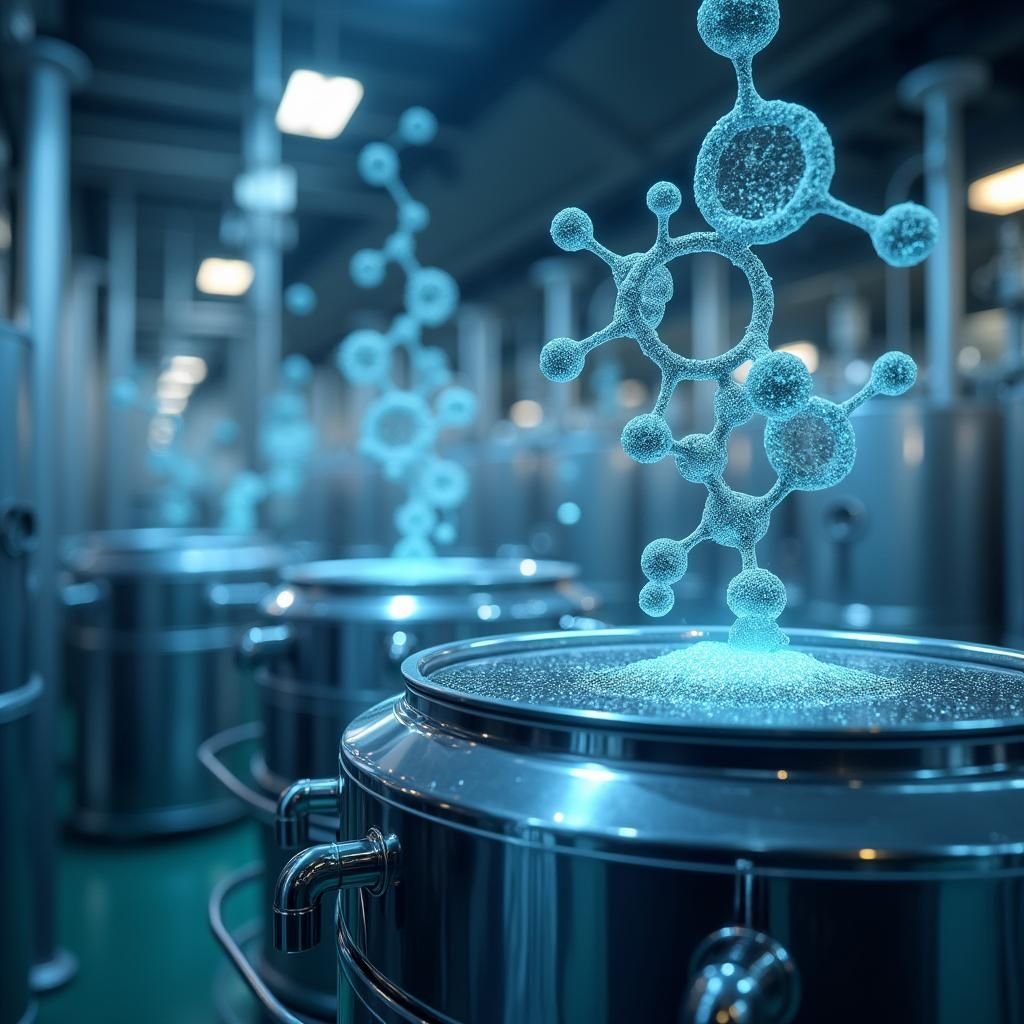Industrial enzymes in India are powerful biological catalysts that play a pivotal role in various industries, from food production to biofuels, pharmaceuticals, and more. They are essential in driving efficient chemical reactions, offering cost-effective and eco-friendly alternatives to traditional chemical processes. In this guide, we explore the significance of industrial enzymes, their applications, and how they contribute to modern industries.

Industrial enzymes are specialized proteins that speed up chemical reactions, making them faster, more efficient, and more specific. These enzymes are produced by microorganisms or extracted from natural sources and are used in a wide range of industrial processes. They break down complex substances into simpler compounds, facilitating reactions that would otherwise be difficult or impossible.
Industrial enzymes are specialized biological catalysts used to speed up chemical processes in various industries such as food processing, textiles, pharmaceuticals, detergents, paper, and biofuels. Derived from natural sources like plants, animals, and microorganisms, these enzymes help improve efficiency, reduce energy consumption, and minimize environmental impact. In India, the growing demand for sustainable and eco-friendly manufacturing has significantly boosted the use of industrial enzymes. They play a crucial role in processes like starch conversion, brewing, dairy production, fabric treatment, and waste management, making them an essential component of modern industrial operations.
If you want to explore the types of enzymes used in the food industry and other industrial applications, check out our Support Page on Types of Industrial Enzymes & Their Roles.
Industrial enzymes are indispensable in several sectors, driving both innovation and sustainability. Below are the key industries where they make a significant impact:
The global demand for industrial enzymes is growing, leading to a thriving market for enzyme importers, exporters, and distributors.
To gain deeper insights into the various aspects of industrial enzymes, we have compiled a series of informative resources that can help you better understand their applications and benefits:
If you’re looking to understand how industrial enzymes in India are used across different sectors, our Industrial Applications of Enzymes page provides an in-depth look at their role in industries like food processing, biofuels, pharmaceuticals, and textiles. This resource will help you see how enzymes can optimize processes and drive efficiency.
Curious about the broad impact of enzymes on industry? Our Why Enzymes Are Important in Industry blog outlines the fundamental role enzymes play in everything from food production to environmental sustainability. It explains how they can enhance product quality and reduce costs, making them indispensable in modern manufacturing.
For those involved in the global trade of enzymes, we’ve crafted a detailed guide on Exporting Enzymes from India. This blog covers everything you need to know about the complexities of enzyme exports, from understanding export duties to navigating the regulations that govern international trade.
Lastly, if you’re interested in the most critical enzymes used in industry, our Industrially Important Enzymes: Top 10 by Application blog lists the most widely used enzymes, focusing on their top applications. This resource provides a deeper understanding of which enzymes are essential to your business and how they can enhance production processes.
Technical assistance for optimal enzyme usage [Contact Us] for bulk enquiries or technical consultations
Industrial enzymes are an integral part of modern industry, offering sustainable, efficient solutions that are driving innovation in various sectors. Whether you are involved in food processing, biofuels, pharmaceuticals, or textiles, industrial enzymes provide you with the tools to improve production quality, enhance sustainability, and remain competitive.
At Antozyme Biotech, we proudly serve as a trusted enzyme importer, exporter, and distributor in India — delivering reliable, high-performance enzymes across industries and borders. With the right enzymes and partners, your business can optimize its operations and stay ahead in the market.
Q1. What is the role of an industrial enzyme distributor in India?
Ans – An industrial enzyme distributor in India acts as the bridge between enzyme manufacturers in India and end-users, ensuring timely delivery, regional availability, and technical support. Distributors often stock multiple enzyme types to serve various sectors like food processing, detergents, and biofuels.
Q2. How do I choose the right enzyme exporter from India?
Ans – When selecting an enzyme exporter from India, consider factors like ISO certification, regulatory compliance (halal, kosher, non-GMO if needed), product traceability, and documentation support. A reliable exporter should also have a strong logistics network and knowledge of international shipping requirements.
Q3. Do industrial enzymes require cold-chain logistics during export?
Ans – Not always. Some enzymes are stable at ambient temperatures for limited durations, while others require cold-chain logistics to preserve activity. Exporters typically include stability data and packaging instructions to ensure proper handling based on the enzyme’s temperature sensitivity.
Q4. What industries benefit most from importing industrial enzymes?
Ans – Industries that rely heavily on bio-processes—like food and beverage, textiles, biofuels, and pharmaceuticals—benefit the most from enzyme imports in India. These enzymes improve product quality, reduce processing time, and support sustainable manufacturing goals.
Q5. Can enzyme importers request custom blends or specifications?
Ans – Yes, many enzyme importers in India work with suppliers who offer custom formulations tailored to specific applications such as high-temperature stability, targeted pH ranges, or faster reaction times. At Antozyme, we provide technical consultations to develop solutions that match exact industrial needs.